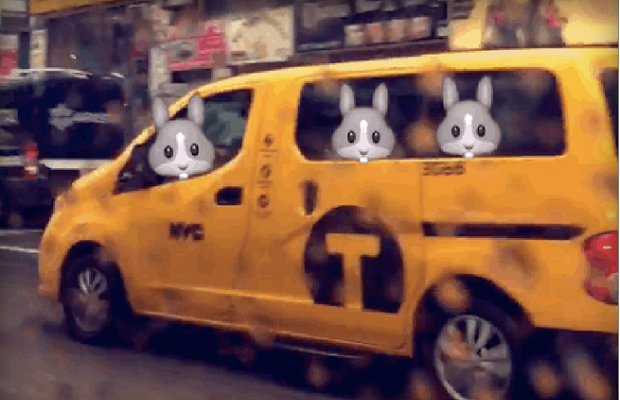Snapchat has introduced 3D stickers which can be pinned to an object in a video, as the popular chat app continues to boost engagement with new features.
Stickers were introduced by the firm at the end of last month, one of a number of ways the app is catching up with social media giant Facebook.
Snapchat has already rolled out the feature for Android users, iOS users will see it in the coming weeks.
The new feature means that pinned emojis will move, rotate, and scale automatically as the subject – whether it’s a pet or a person – moves in the video.
For example, you can take an emoji of a happy face and stick it on the head of your cat. The face turns as the cat moves on the floor of your kitchen.
Altering images had already proved a hit with Snapchat’s users when the app introduced a filter option in September, which made you look like you have hearts for eyes, or like you’re vomiting rainbows.
Late last month, Snapchat added a raft of new features, terming the update as Chat 2.0 update.
The addition included a collection of in-chat stickers to best express your mood. Voice chat too has been added. This means in case a recipient is busy, he/she can can leave ten-second Video Notes or voicemails.
The update also included auto-advance feature for Stories.
The move comes after Snapchat hired Eitan Pilipski, according to TechCrunch.
Pilipski was the VP of engineering at Vuforia, an augmented reality technology that has “the power to connect experiences to specific things in the environment”.
Snapchat uses “machine vision to recognise distinct objects in a video”, the website said, so the app “can track them as they move and keep the stickers in sync”.
A recent survey found that the average Snapchat user spends an average of 25 minutes to 30 minutes a day on the app. This new feature has the ability to keep users on the app for additional time.
The longer the amount of time people stay on Snapchat, the more money that the company can charge advertisers.
Expanding its features, however, has seen its popularity surge as it seeks to take on competitors such as Facebook, which reportedly saw its $3 billion (£1.9bn) acquisition offer for the start-up rejected in 2013.
superimposing stickers on the rest of the world will be the first popular augmented reality art tool @snapchat pic.twitter.com/kkDiCZffPH
— nicholas (@nnnnicholas) April 13, 2016
